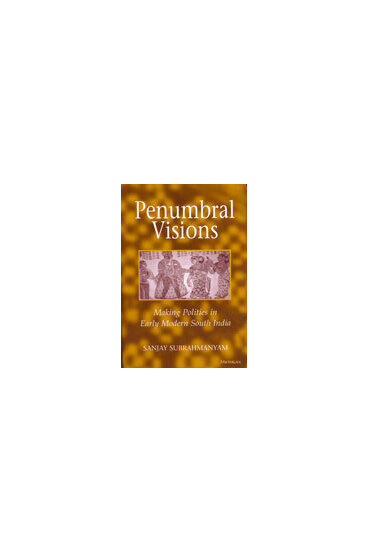Penumbral Visions
Making Polities in Early Modern South India
The latest scholarship on early modern India from one of South Asia's most eminent historians
Description
Penumbral Visions explores how the political structure and political culture of the states of south India were transformed between 1500 and 1800. In Asia this period was characterized by a contest between European influence and indigenous political and economic processes. The book highlights the dynamism and resilience of indigenous societies and characterizes them as early modern. At the same time, it challenges the myth that India experienced an ideal social equilibrium, or Golden Age, that was ruptured by colonial rule.
Sanjay Subrahmanyam draws upon sources in Portuguese, Dutch, English, Spanish, and a variety of Indian languages and archives to enter into the lives of states like Mysore, Tanjavur, and Arcot that have been neglected by historians of the seventeenth and eighteenth centuries. He has also drawn upon literature dealing with the experience of colonialism in areas as far-flung as Latin America and the Ottoman Empire. The book therefore constitutes an important intervention in the interpretation of South Asian history in particular and--more broadly--in the history of Eurasian societies in the early modern epoch.
Sanjay Subrahmanyam is Director of Studies, Ecole des Hautes Etudes en Sciences Sociales, Paris.

